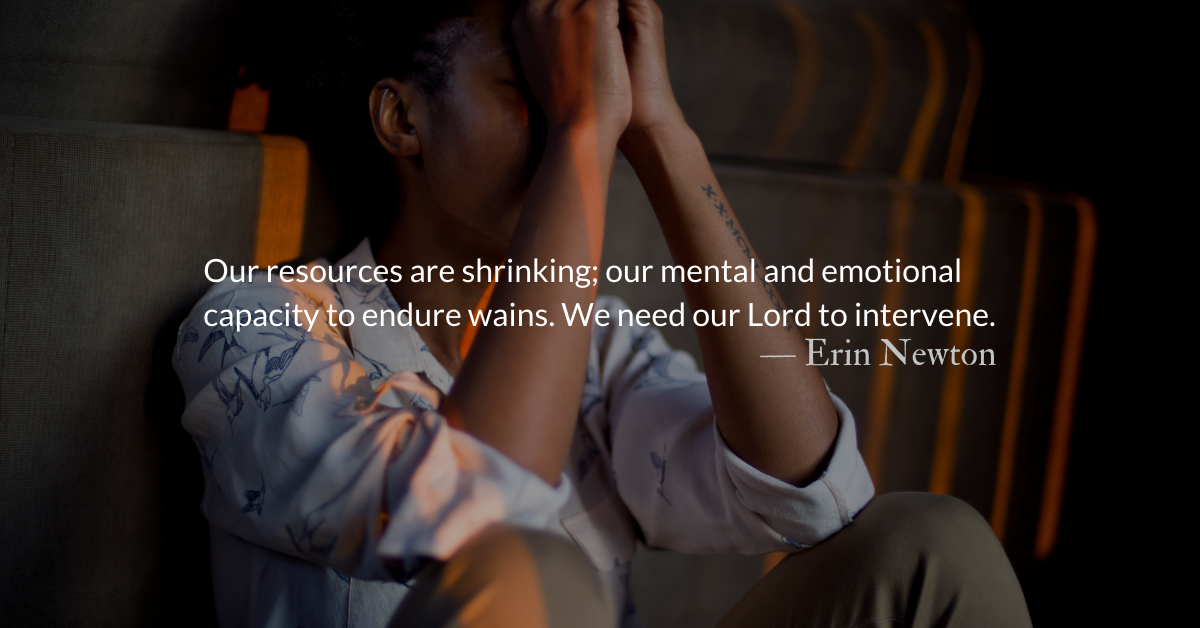Scripture Focus: Psalm 86.11-13
11 Teach me your way, Lord,
that I may rely on your faithfulness;
give me an undivided heart,
that I may fear your name.
12 I will praise you, Lord my God, with all my heart;
I will glorify your name forever.
13 For great is your love toward me;
you have delivered me from the depths,
from the realm of the dead.
Reflection: State of Our Souls
By Erin Newton
Once again, these are unprecedented times. We have been jarred emotionally, physically, mentally, and spiritually. We need an anchor. There are times that we typically set aside to refocus our lives and assess any shortcomings. We see this in the state of the union, new year resolutions, or annual work performance reviews. In the same way, the church has often used the liturgical calendar to mark Ash Wednesday as a day of reflection and prayer.
The early church often held baptisms only once a year and the period between Ash Wednesday to Easter Sunday was meant to be a time when solemn reflection was made. Time to think about salvation. Time to ponder the depths of the sacrifice of Christ. Time to resolutely commit to the lordship of Jesus.
Reflecting on the work of Christ in our lives is something we must repeat. Remembering our need for salvation, confessing our sin, and rejoicing in the grace of God is an anchor in these storm-tossed waves of life.
Psalm 86 is a wonderful hymn to pray for this purpose. The verses guide us. We acknowledge our need for God’s help. Hear me, Lord, and answer me, for I am poor and needy. Our resources are shrinking; our mental and emotional capacity to endure wains. We need our Lord to intervene.
We must remind ourselves that we do not trust in an empty god as other nations do. Among the gods there is none like you, Lord; no deeds can compare with yours. We anchor our souls in no false hope or pseudo-savior. We know that Christ alone is Lord.
We meditate on the character of God. You, Lord, are forgiving and good, abounding in love to all who call to you… But you, Lord, are a compassionate and gracious God, slow to anger, abounding in love and faithfulness. We need to remember his goodness and love for us. Our world is always angry and hateful, but he abounds in love and is slow to anger.
So, with this, we recenter our hearts and minds on him. As we move toward the solemn remembrance of the crucifixion of Christ and his joyous resurrection, we recommit our lives. We pray for an undivided heart. No person, cause, or ideology should vie for the supremacy of Christ in our lives. Take this time to remember the anchor of our souls.
Divine Hours Prayer: The Refrain for the Morning Lessons
I will confess you among the peoples, O Lord; I will sing praises to you among the nations. — Psalm 108.3
– From The Divine Hours: Prayers for Springtime by Phyllis Tickle.
Today’s Readings
Proverbs 21 (Listen – 3:12)
Psalm 86-87 (Listen – 2:26)
Read more about The Church’s One Foundation — Lenten Hymns
“The Church’s One Foundation” is Stone’s attempt to expound upon article nine of the Apostle’s Creed.
Read more about Examine the Examen
The simplest, shortest way to summarize the Examen may be the following five words: Awareness, Analysis, Admission, Acceptance, Anticipation.











